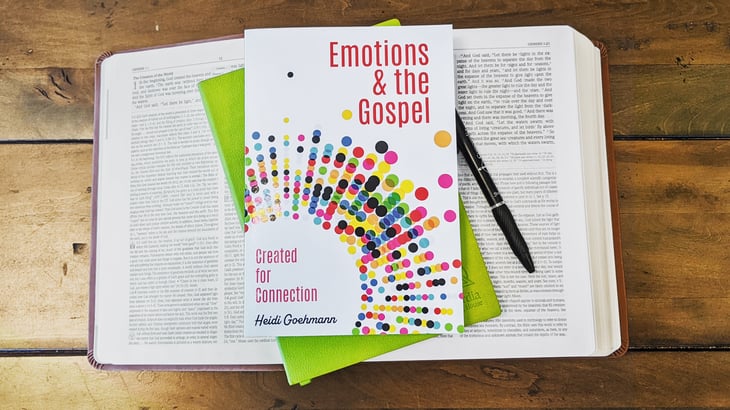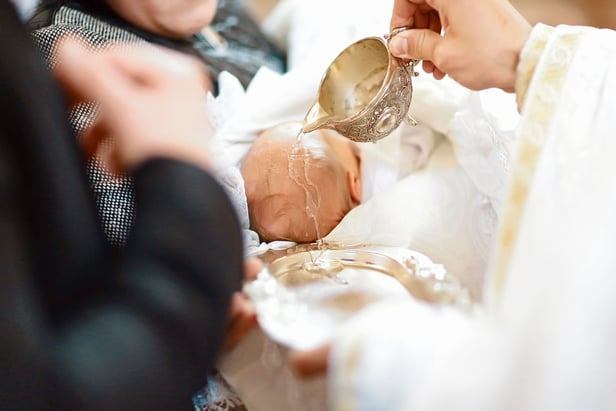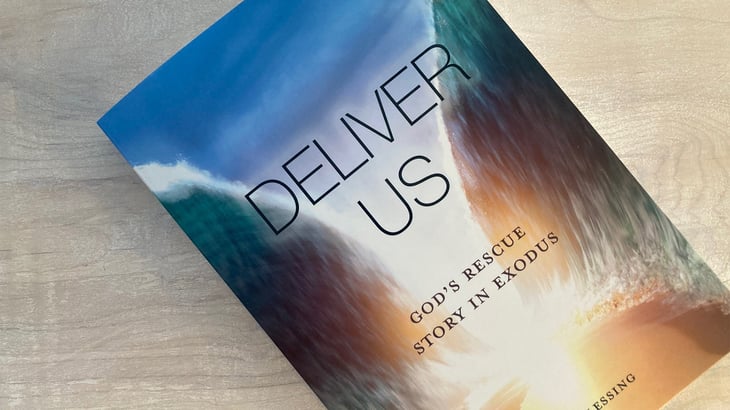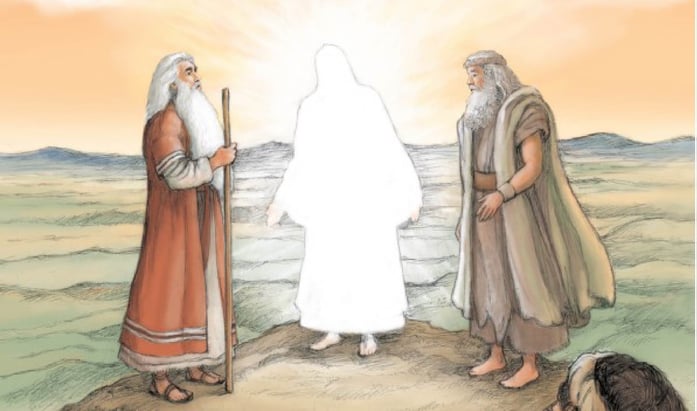3 Commonly Misunderstood Bible Verses
When we quote Bible verses, our intentions are often good. We want to encourage ourselves and others, so we put Bible verses on home décor, shirts, mugs, bumper stickers, and social media. However, it can be easy to take Bible verses out of context if we don’t stop to ask, “How did we get here?”
Author Andrew R. Jones shares three popular Bible verses that are misunderstood and provides context for them below.
The Lutheran View of Salvation and How It Brings Comfort
Most of the other people in the churches I’ve attended grew up going to a Lutheran Church. It has seemed pretty rare to find people who do not have a background of belonging to the church. So when I found out that Author Molly Lackey also converted to the Lutheran Church in high school, I knew that we shared something unique.
Your Emotions Are God’s Gift
Discover your wide breadth of emotions as a gift from the Creator in Heidi Goehmann’s latest book, Emotions and the Gospel. Read an excerpt about how God created your emotions to be good (even the so-called bad ones) and to mirror His own perfect emotions before creation’s fall to sin.
What I Learned Leading a Women's Bible Study
Every Monday at 9:00 p.m. (yes, you read that right), three of my friends and I meet to prepare for the women’s Bible study we lead at Concordia University. We can have anywhere from five to twenty gals show up for what we call “Propel.” The four of us divide the responsibilities of leadership so that no one gets burned out.
What are the Means of Grace?
You probably haven’t heard the term Means of Grace mentioned today in the morning news, on social media, or during small talk at the grocery store. It’s not part of most regular conversation, and even the words seem somewhat abstract in contrast to popular language. You hear about Means of Grace in church and maybe in your devotions, but what does the term really mean? There is a simple explanation for what Lutherans believe about these Means of Grace and why they are for you.
A Student’s Sneak Peek into Deliver Us
My book list for last semester was more hefty than usual, and I dreaded putting in my $100 order at the bookstore. But there was one relief. A required book written by my professor wasn’t published yet, so we would be receiving the manuscript from him for free. What luck! I was excited to save some money, even though it still meant I had to read what I expected to be a dull textbook. My expectation was not met.
From Clueless to Fearless: Learning from Peter
After reading Mark’s account of the transfiguration, I asked the teenagers in Sunday School if they had any comments or questions. A fifteen-year-old girl hesitantly raised her hand. “Um, I don’t know how to say this, but the disciples were . . . not smart.” The other kids laughed and agreed, and we spent a few minutes talking about the clueless disciples.
Six Christian Books for Busy College Students
Classes keep you busy, and you look forward to those five minutes you can spend doomscrolling on your phone at the end of the day. I get it. Sometimes you need to turn your brain off and mindlessly scroll. But couldn’t you spend those minutes doing something better for yourself?
What if you spent those five minutes connecting with God instead? Concordia Publishing House has six books that are perfect for the busy student who only has a couple minutes for peace. Each book can be broken up into easy-to-read sections. They are also great for meditation. Read on to see why I recommend these books!
Keep Up Bible Study Attendance: It’s for Everyone
At this time of year, many churches start their regular Sunday morning Bible classes and weekly small group meetings.
But if you look at the weekly attendance to Bible studies compared to the number of people who attend worship on Sunday, the numbers don’t quite match up. Why do fewer people attend these studies? Why is there such a big gap? What’s the disconnect?
I’d like to argue that there are no excuses for not attending Bible study. People of all ages need to study the Scriptures surrounded by fellow Christians. Here are three common reasons why people might not attend regular Bible study and some encouragement to rethink that perspective!
Trust Christ’s Victory Instead of Striving for Success
For the past 12 years, I’ve called myself a “stay-at-home mom.” Last fall, my youngest started kindergarten and, as he headed off to school, I did also. I started substitute teaching. A few years ago, I started writing and speaking. About that time, I started to ask myself questions about each of these vocations.
In all of my vocations, I struggled to define what a successful day, year, or lifetime would look like. I’ve come up with ideas, but they often shift with experience, the realization of responsibility, or even my mood.









.jpg?width=50&height=50&name=IMG_20220621_160541_456%20(1).jpg)
















